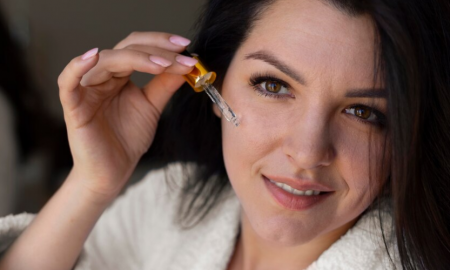
How ‘Doing Nothing’ With Intention Can Boost Your Mental Well-Being

Doing nothing sounds almost impossible in our hyper-connected, always-busy world. From juggling work and personal life to social media and constant notifications, we are always on the go.
Millennials are all over the #SlowLiving trend, and Gen Z is leading the “quiet quitting” movement. Both are actively seeking lives that emphasize mental peace over constant productivity.
It might seem counterproductive, even strange. But intentionally doing nothing could actually improve your life. The idea may feel foreign because society has long equated busyness with success, but attitudes are changing. Now, the concept of doing less – or even nothing – is viewed as aspirational. A key to emotional freedom, creativity, and a healthier outlook on life.
The Growing Trend of Doing Nothing
Doing nothing is trending – and for good reason. As the pressures of modern life weigh on us, more people are seeking a break from the endless cycle of work, hustle, and striving. On Instagram, #SlowLiving has over six million mentions.

RDNE / Pexels / People are hungry for slower, mindful lives, and even social media – with its inherent rush and comparison – is being used to explore this idea.
This shift is about finding value in stillness, in those empty spaces where creativity can flow, and stress can dissipate. However, doing nothing is not about being lazy. It is about reclaiming time and energy that is constantly spent on achieving, scrolling, and consuming.
For Gen Z, it is the “lazy girl job” where the goal is to conserve energy for personal fulfillment, not endless career climbing.
What is the Science Behind Swoing it Down?
Science actually backs up the idea that doing nothing is good for you. When we let our minds rest, we enter what is known as the “default mode network” in our brains. This mode is crucial for creativity, memory, and problem-solving. It is when we are not actively focused on a task that our brain gets a chance to connect ideas, reflect, and grow.
In a way, doing nothing is when the magic happens.
Beyond creativity, doing nothing is great for mental health. Stress levels drop when we allow ourselves a break from constant activity, reducing the chances of burnout and anxiety. Research has shown that letting your mind wander without purpose can refresh you. Thus, providing a sense of calm and clarity that we all need in this fast-paced world.
How Doing Nothing Boosts Creativity
You may not think of it, but doing nothing can be a creative powerhouse. Often, our best ideas come when we are not actively trying to solve a problem. Think about the “aha” moments you have had while showering or taking a walk.
This happens because when we are not actively focusing, our minds have space to connect unrelated ideas and spark new insights.

Olly / Pexels / Taking a step back and doing nothing for a while might feel counterintuitive. But it is exactly what you need.
By stepping away, you give your brain a chance to find fresh solutions. In this way, doing nothing can lead to breakthroughs that working harder never could.
How to Find Balance Through Slowing it Down?
Balance is something we are all searching for, especially with work demands, family responsibilities, and social lives pulling us in different directions. Doing nothing offers a unique way to reset and find that balance.
By intentionally carving out time when you are not working, socializing, or even scrolling, you make room to recharge.
The balance comes from slowing down. When you are not constantly filling every moment, you give yourself permission to breathe, to be present. Over time, this practice can help you manage stress better and approach life’s challenges with a calmer, more grounded mindset.
More in Mental Health
-
`
Chad Smith and Will Ferrell Drum-Off – A Night of Comedy and Music
The year was 2014. The late-night talk show landscape was abuzz with a brewing battle unlike any other. It wasn’t a...
July 8, 2024 -
`
Can Coughing Cause Back Pain?
Back pain is a common complaint among many individuals, but did you know that a simple action like coughing can exacerbate...
July 5, 2024 -
`
How to Overcome Imposter Syndrome?
Imposter Syndrome is a familiar term many recognize as a psychological state where individuals doubt their accomplishments, fearing that others will...
June 27, 2024 -
`
Which Peptides Are Best for Anti-Aging?
For those seeking to combat the signs of aging and maintain a youthful appearance, the world of skincare can feel overwhelming....
June 18, 2024 -
`
Celebrities with Celiac Disease – Inspirational Stories and Struggles
Celiac disease is a serious condition, and even the rich and famous aren’t immune. Many celebrities have been open about their...
June 10, 2024 -
`
How to Fix Poor Sleep Hygiene for Better Rest
Sleep is a fundamental human need, as crucial for our well-being as a healthy diet and regular exercise. Yet, many people...
June 6, 2024 -
`
5 Easy & Effective Ways of Coping With Depression
Depression is more than just feeling sad or having a bad day. It is a pervasive mental health condition that affects...
May 30, 2024 -
`
Top 10 Practical 60th Birthday Ideas For Everyone
Turning 60 is a milestone worth celebrating! Whether you are planning your own bash or organizing a celebration for a loved...
May 24, 2024 -
`
What is the Meaning of Angelina Jolie’s Back Tattoo? Explore
If you have ever caught a glimpse of Angelina Jolie’s back tattoo, you might have wondered, “What is the story behind...
May 17, 2024















You must be logged in to post a comment Login